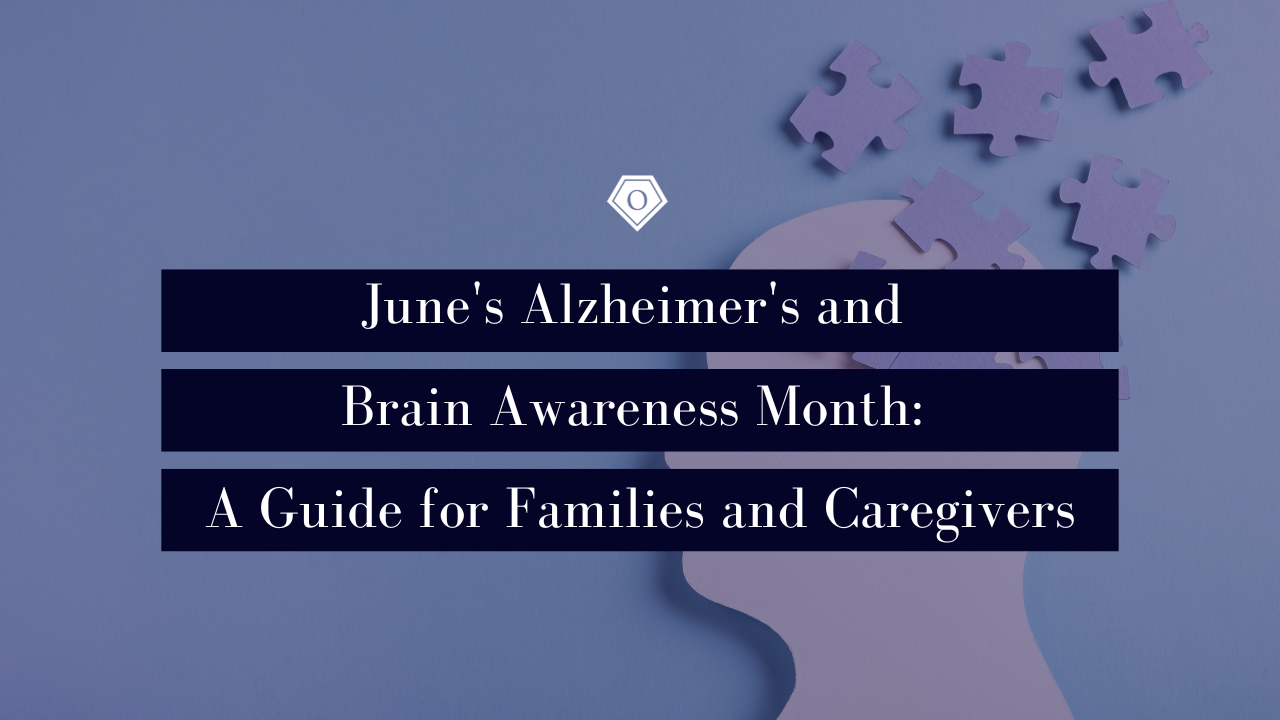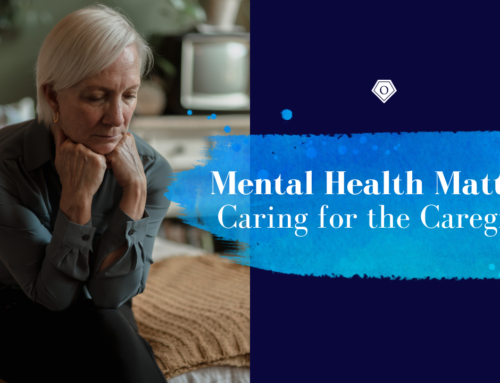June is Alzheimer’s and Brain Awareness Month, it is a time dedicated to raising awareness about Alzheimer’s disease and other forms of dementia. Understanding the signs, symptoms, and stages of the disease and knowing the next steps for caregivers are crucial in providing the best care for loved ones. Recognizing when it might be time to consider home health care can significantly improve the quality of life for patients and their families.
Signs and Symptoms of Alzheimer’s Disease
Alzheimer’s disease is the most common form of dementia, affecting memory, thinking, and behavior. The signs and symptoms vary, but some common indicators include:
Memory Loss:
Forgetting recently learned information, important dates, or events.
Challenges in Planning or Solving Problems:
Difficulty following familiar recipes or keeping track of monthly bills.
Difficulty Completing Familiar Tasks:
Trouble driving to a familiar location, managing a budget, or remembering the rules of a favorite game.
Confusion with Time or Place:
Losing track of dates, seasons, and the passage of time.
Trouble Understanding Visual Images and Spatial Relationships:
Difficulty reading, judging distance, and determining color or contrast.
New Problems with Words in Speaking or Writing:
Struggling with vocabulary, stopping in the middle of a conversation, and repeating themselves.
Misplacing Things and Losing the Ability to Retrace Steps:
Putting things in unusual places and being unable to retrace steps to find them.
Decreased or Poor Judgment:
Poor decision-making and less attention to grooming or keeping themselves clean.
Withdrawal from Work or Social Activities:
Removing themselves from hobbies, social activities, or projects.
Changes in Mood and Personality:
Becoming confused, suspicious, depressed, fearful, or anxious.
Stages of Alzheimer’s Disease
Alzheimer’s disease progresses through several stages:
Preclinical Stage:
No symptoms yet, but brain changes are occurring.
Mild Cognitive Impairment (MCI):
Mild changes in memory and thinking abilities, noticeable but not yet significant.
Mild Dementia:
Increased memory loss and confusion, problems with money, wandering and getting lost, repetitive questions.
Moderate Dementia:
Increasing memory loss, confusion, and difficulty with language, reasoning, and sensory processing.
Severe Dementia:
Loss of the ability to communicate, need for full-time care, loss of physical abilities, including walking, sitting, and eventually swallowing.
Next Steps for Family Caregivers
As a caregiver, taking the following steps can help manage the challenges of Alzheimer’s disease:
Educate Yourself:
Learn about the disease, its progression, and management strategies.
Create a Support System:
Join support groups, connect with other caregivers, and seek professional guidance.
Plan for the Future:
Discuss legal, financial, and care arrangements early on.
Maintain a Routine:
Consistency can help reduce confusion and anxiety for your loved one.
Take Care of Yourself:
Ensure you have time for self-care and respite. Caregiving can be demanding, and your well-being is crucial.
When to Consider Home Health Care
Deciding when to seek professional home health care can be challenging. Consider the following factors:
Safety Concerns:
If your loved one is at risk of wandering, falling, or forgetting to take essential medications.
Increased Care Needs:
When personal care (bathing, dressing, eating) becomes too challenging to manage alone.
Caregiver Burnout:
If caregiving demands impact your physical and mental health.
Complex Medical Needs:
When your loved one requires medical care beyond what you can provide.
Quality of Life:
If professional care can enhance the quality of life for your loved one by providing specialized care and activities.
Home health care can offer specialized support tailored to the unique needs of individuals with Alzheimer’s, allowing them to remain in the comfort of their home while receiving the care they need.
June’s Alzheimer’s and Brain Awareness Month is a vital opportunity to educate ourselves about Alzheimer’s disease and its impact. By recognizing the signs and symptoms, understanding the stages, taking proactive steps as caregivers, and knowing when to seek home health care, we can provide better support for our loved ones and improve their quality of life. Let’s use this month to spread awareness, share knowledge, and support those affected by Alzheimer’s disease.
Alzheimer’s and Dementia Care
Onyx Home Care’s neurological disorder care is built around a system of support. This service includes skilled home care as well as a unique program that centers on the patient’s interests and stage of illness. Our goal is to see happy family members, patients and caregivers. Often times, caregivers feel remote. Our team includes each person in the home care process to provide inclusive care that helps the patient thrive.






